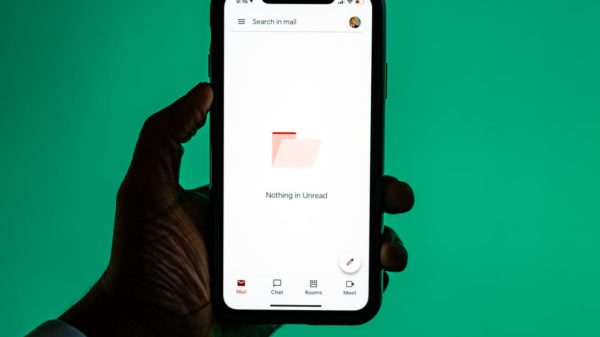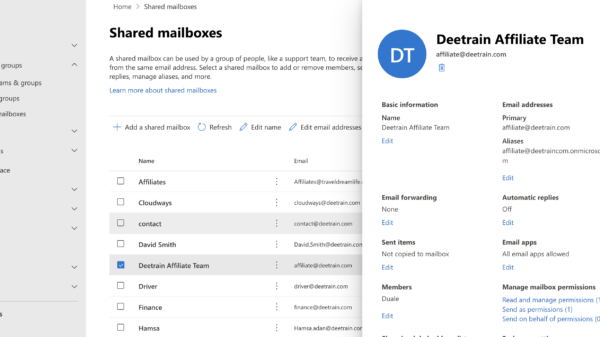The CompTIA A+ is an excellent entry-level IT certification that has helped many people launch their careers in IT and Cybersecurity. However, many people underestimate how difficult the A+ tests are.
The CompTIA A+ is a professional industry certification with the same difficulty level as any other entry-level professional license test. However, it is mainly determined by your level of IT expertise. Many A+ test candidates misjudge the complexity of the examinations and the amount of preparation required.
Let’s get started and talk about why the A+ examinations are tricky for test-takers and what you can do to secure your exam success.
Why is the CompTIA A+ Exams so Challenging?
- Test takers underappreciate l A+ Exams
- A Significant Number of Exam Objectives and Content
- A+ Requirements for Memorization
Test takers underappreciate A+ Exams:
The CompTIA A+ certification is unquestionably valuable; however, the main issue I notice with CompTIA A+ test takers is that they overestimate the difficulty of the examinations.
This is reasonable in some respects, given that virtually everyone who attempts the A+ is taking their first professional certification test in their lives.
The truth is that for the majority of people pursuing the A+, their only past testing experience is generally confined to college or high school examinations, or at best, a standardized exam like the SAT.
Many people may not realize that a professional licensing or certification test is not the same as what they would encounter in a high school or the college classroom.
A typical student will study for such classroom-based tests for up to one week on average for every particular exam.
Working professionals obtaining career certifications or licenses, on the other hand, often spend two to four months studying for a test, in addition to hundreds or even thousands of dollars in the course and material fees.
A typical student will study for such classroom-based tests for up to one week on average for every particular exam.
Working professionals obtaining career certifications or licenses, on the other hand, often spend two to four months studying for a test, in addition to hundreds or even thousands of dollars in the course and material fees.
This should give you a fair idea of how much content is on the A+ examinations and how specific the questions will be. You must truly understand all of the exam objectives, and this level of expertise takes years to develop.
A Significant Number of Exam Objectives and Content:
Take a look at the complete list of test objectives for the A+ examinations, and you’ll notice that there’s a lot of stuff that you’re expected to know. When you compare this quantity of information or goals to any college exam, I’m confident you’ll discover that a college professor isn’t testing on as many topics or in as much depth as you’ll see on A+ examinations.
Overall, the A+ requires more knowledge than other CompTIA certification tests, such as Network+ and Security+, which is why CompTIA utilizes two comprehensive examinations to cover it all instead of only one for the others.
A+ Requirements for Memorization:
The CompTIA A+ exam covers a lot of practical knowledge, but it also needs you to know many facts. These items can be challenging to learn because there is no other method to learn them other than memorizing.
There are many topics on the A+ that could be useful to know, but most IT professionals don’t know and don’t need to know to accomplish their jobs. Some of the things on the A+ are not utilized or referenced daily in the field, so IT workers do not always maintain them at the forefront of their minds.
These professionals are aware of these facts and, more crucially, know how to seek them up and verify them when necessary, but they do not remember them.
What this implies for you as an A+ test-taker is that you will be required to memorize more than you would for a career in the area, and in some circumstances, you will be studying topics that you will not refer to much once the exam is done.
In any case, you’ll still have a lot of memory and study ahead of you, which might be difficult.
What is the CompTIA A+ Exam Format?
The A+ comprises two exams: Core 1 (220-1001) and Core 2 (220-1002). (220-1002).
Both examinations can include up to 90 questions. The questions are multiple-choice and performance-based. A performance-based question presents a scenario that you must troubleshoot in the same way you would in a real-life setting.
It necessitates that you integrate your academic understanding with real-world instances.
Core 1 and 2 each last 90 minutes. There are no prerequisites for these, so you can be a complete IT novice before you begin studying for them. However, CompTIA recommends that you have between nine and twelve months of experience as an IT support expert.
This is not required in any manner, and there are several cases of people who have had no prior work experience and passed the A+ with High Marks.
Core 1 Exam
Core 1 consists of the test objectives listed below, broken down into percentages (the extent to which they are reflected in the exam):
- Computer hardware (27 percent )
- Troubleshooting of Hardware and Networks (27 percent )
- Collaboration (20 percent )
- Mobile Phones (14 percent )
- Cloud computing and virtualization (12 percent )
- Core 1 has a passing score of 675 on a scale of 100 to 900.
Core 2 Exam
While Core 1 is primarily concerned with hardware, Core 2 is more concerned with software, cybersecurity, and operational procedures:
- Computer Operating Systems (27 percent )
- Troubleshooting Software (26 percent )
- Safety is paramount (24 percent )
- Procedures for Operation (23 percent )
- Core 2 requires a minimum score of 700 on a scale of 100 to 900 to pass.
Core 1 and Core 2 focus on the following IT industries when combined:
- Infrastructure and hardware (35 percent )
- Safety is paramount (21 percent )
- Service and Operations (19 percent )
- Computer software (19 percent )
- Information (7 percent )
7 Tips for Passing CompTIA Exams
Nobody enjoys failing an exam. There is no reason why you cannot pass the CompTIA A+ test the first time. The exam is $232 for 220-1001 and $232 for 220-1002, for a total of $464! That is a considerable investment, but it will soon pay for itself if A+ certification helps you get a job or a promotion.
Use these study suggestions for the CompTIA A+ test and other CompTIA exams to give yourself the best chance of success.
- “Brain Dumps” Are Not the Solution
- Memorize the Test Objectives
- Construct a Computer or Set Up a Network
- Take Practice Tests
- Avoid Unusual Exam Questions
- Perform admirably on the Performance-Based Questions
- Join an Online CompTIA Exam Tricks Community
Brain Dumps” Are Not the Solution
A “brain dump” is when someone uploads test questions and answers after taking an exam. While this may appear to be a simple way to acquire up-to-date information regarding the test, proceed with caution.
Aside from being immoral, you have no way of knowing if you’re getting the correct responses (or questions). There is no confirmation. You might be memorizing incorrect answers or being wholly duped.
Certification exams do more than certify you. They teach you essential knowledge that you will be required to know at work. Memorizing a brain dump will not help you apply the information in the real world.
Worse, sharing brain dumps might get you into legal problems since CompTIA tests require you to sign a non-disclosure agreement. This CompTIA Reddit discussion summarises why you should avoid them ideally.
Memorize the Test Objectives
Let us begin from the beginning. A description of the test objectives accompanies each exam. While this may seem obvious, understanding the goals means you’ll be more prepared to take and pass your test in general. It assists you in organizing and structuring the material that you are learning as you learn it.
Another advantage of having this roadmap is that it tells you how quickly or slowly you’re progressing through the test. Knowing where you are in the test and how much time you have remaining is critical for time management.
You may change how much time you spend on each question to ensure that you complete the test. Alternatively, you may be hurrying due to nervousness and want reassurance to take your time.
Construct a Computer or Set Up a Network
This is especially true for the CompTIA A+ and Network+ exams. The CompTIA A+ 1001 test covers hardware, whereas the CompTIA A+ 1002 exam covers software.
Although it may appear overwhelming, creating a real computer is a wonderful way to prepare. It will be critical in comprehending the theory and how to apply it to your job. The same may be said with the Network+ test. There is no better way to learn about networks than to build your own.
This is beneficial in several ways. For example, who hasn’t noticed that something is more prominent or noticeable while doing it than reading about it?
Knowing your way around a computer or network firsthand adds context to the material you’re learning. If you are a kinesthetic learner, creating machines may be the best method to get the knowledge to “click.”
If constructing your system is too expensive, taking a class might provide you with access to practice PCs. Our CompTIA A+ courses offer hands-on lab experience. The next best choice is to take online lessons and practice in a virtual lab.
Take Practice Tests
CompTIA offers practice questions for nearly every test, including A+, Network+, and Security+. You may hyper-focus on the areas you’re having trouble with, which will indicate how prepared you are overall. Pass CompTIA is a great place to find practice exams.
When you’re going over your answers, figure out what you keep getting incorrect and focus your study efforts on those areas. Before taking the actual test, use the ABC technique to improve your scores.
How much time should you devote to studying for the CompTIA A+ exam? Until you can regularly outperform yourself on practice exams.
Avoid Unusual Exam Questions
CompTIA exams are about time management and are scored on a pass-fail basis. So, if a question appears to be too tricky, simply go on.
There may be beta-tested questions on an exam like Security+, apparently random questions that are being tried out for a future edition of the test. They are not evaluated, therefore missing them will not result in a penalty. The issue is that it’s challenging to identify what is and isn’t a beta question, so don’t skip too many questions that don’t have answers.
Even if you don’t have the beta questions, skipping a problematic question will give you more time to answer the ones you understand. When you return to the subject, you may see it from a whole different perspective or have figured out the solution on your own.
Perform admirably on the Performance-Based Questions
Performance-based questions (PBQs) require the respondent to complete a task or solve a problem in a simulation. These are more complicated questions that may take some time to answer. They do not, however, have to derail your test-taking session provided you are prepared.
First, it is critical to understand that most PBQs will appear at the beginning of the test and, while challenging, are not impossible.
Preparing for these questions using online labs can provide you with the confidence and abilities you need to succeed. However, if you approach the problem and are unsure, it is OK to bypass it for the time being and return to it later.
Join an Online CompTIA Exam Tricks Community
Finding a CompTIA study group online is an excellent method to get ready. The CompTIA subreddit, /r/CompTIA, has a wealth of materials, study tips, and more. The community is teeming with people who have either completed or are in the process of completing their qualifications.
Final Words
The CompTIA A+ exam will be more difficult for you if you have prior expertise and understanding of desktop computer operation, PC hardware, computer networks, security, numerous mobile devices, and related topics. Work experience in the IT sector is not required; however, it will help you understand IT better.









